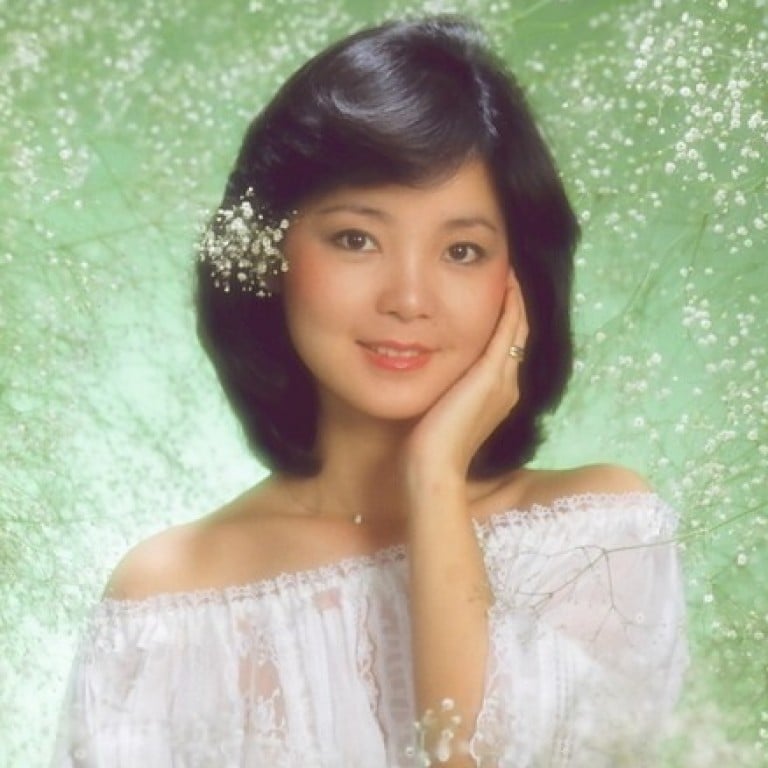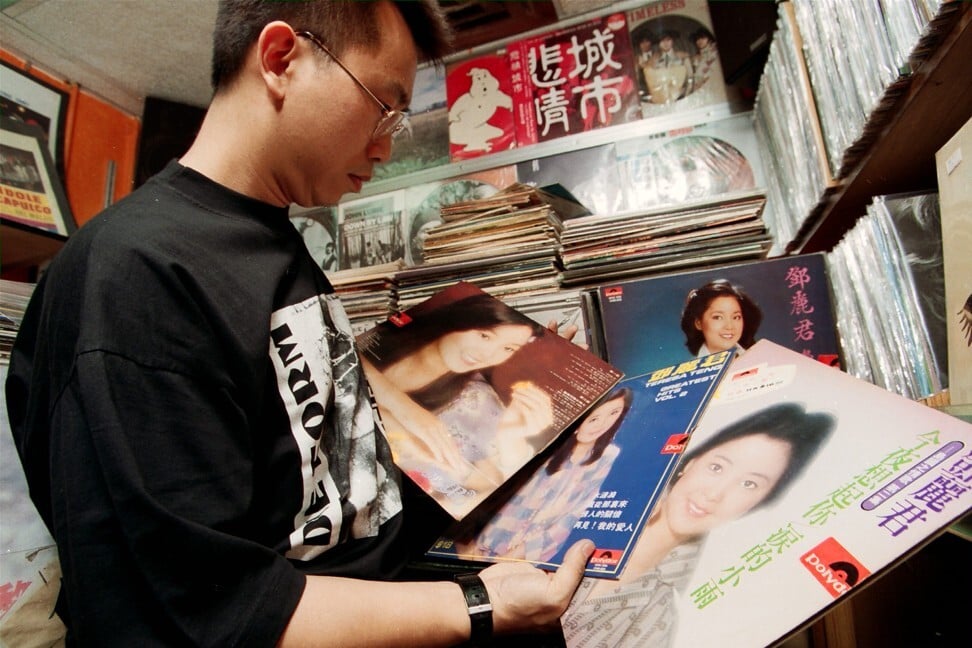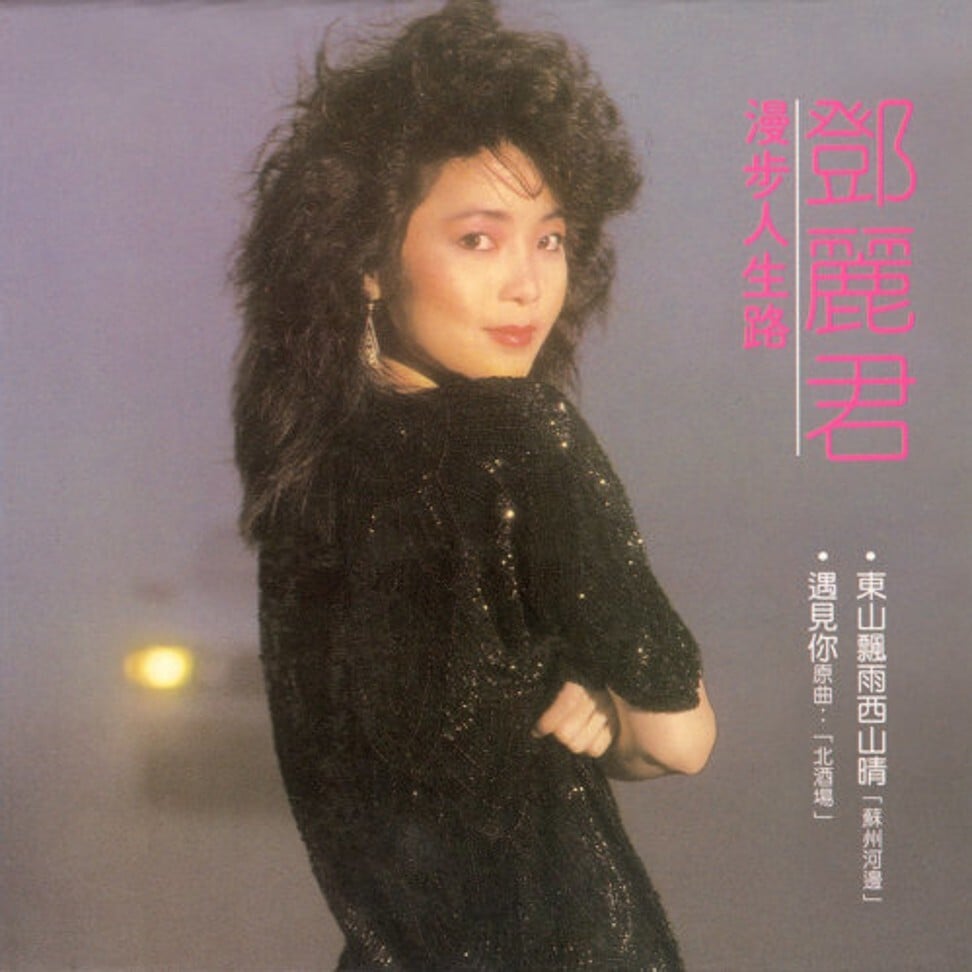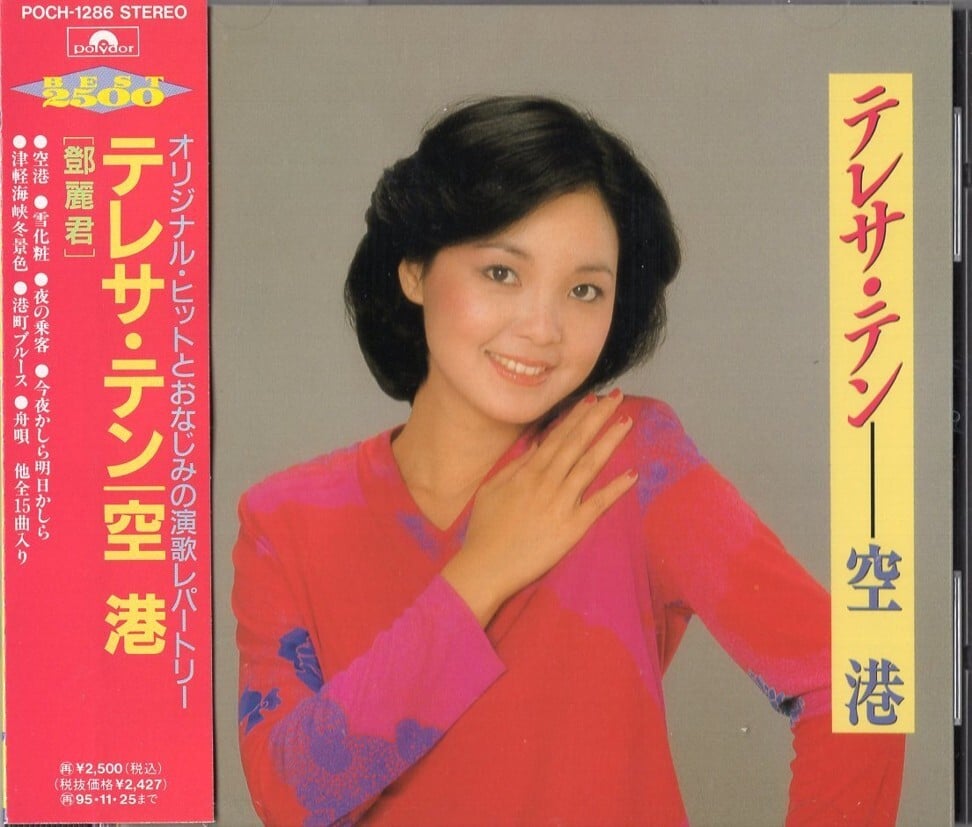5 of Teresa Teng’s songs, each in a different language – 25 years after the legendary Taiwanese singer died from an asthma attack

Teresa Teng, the legendary Taiwanese singer who is regarded as one of the greatest singers in Asian recording history, died after an asthma attack in the Thai city of Chiang Mai 25 years ago on May 8.
Teng, who was known as Deng Lijun in Mandarin, was 42 at the time, and had enjoyed a career spanning 30 years with her powerful ballads and folk songs.
There is a saying that “Wherever there are Chinese people, Teresa Teng’s songs can be heard”. Teng was not only a household name in Taiwan and mainland China, her popularity spread throughout Asia.

Almost 24 million people voted in an online poll conducted by a government web portal to celebrate China’s 60th anniversary in 2009, and Teng was voted the “most influential cultural icon in China since 1949”.
Who was Tina Leung, the Hong Kong movie star who regretted a nude scene?
CNN included Teng among the 20 biggest musical icons of the previous 50 years alongside Michael Jackson, Elvis Presley and the Rolling Stones.

Teng succeeded because of her distinctive sweet and tender voice – the late master of Canto-pop lyrics, James Wong Jim, once described her as “a voice one hears once in a hundred years” – as well as her proficiency in Cantonese, Japanese, English, Hokkien and Indonesian. This allowed her to sing like a native and assimilate into different cultures.

Here is a taste of Teng’s classic melodies in five languages.
Cantonese: Forget Him
Teng’s first Cantonese album was released in 1980. Although the album contained several cover versions, the romantic ballad Forget Him (忘記他 in Chinese) was a Teng original.
The song, written by James Wong Jim, won the Best Canto-pop Song Award at the 1981 RTHK Top 10 Gold Songs Award.
Forget Him was one of Teng’s most popular songs and is considered a milestone in Canto-pop music.
Canto-pop queen Anita Mui was the ‘Madonna of Asia’
Japanese: Airport
Teng began to develop her career in Japan from 1974, with the release of her first original Japanese song Give Yourself To The Flow Of Time, which was later covered in Mandarin as I Only Care About You (時の流れに身をまかせ in Japanese; 我只在乎你 in Chinese).
The same year, she released her second Japanese song, Airport (空港 in Japanese and Chinese), which became a hit in Japan. Also in 1974, she won the New Singer Award for the song.
The song was later covered in Mandarin as Lover’s Care (情人的關懷 in Chinese).
English: I’ve Never Been to Me
American singer Charlene’s 1977 hit, I’ve Never Been To Me, has since been covered by many other singers.
Teng never recorded an English album during her career, but a commemorative English album, “The Way We Were”, was released after her death in 1997.
The album contained songs Teng had performed in English in concerts and on television, and included The Power Of Love, Killing Me Softly With His Song, The Way We Were and Love Story.
6 of Faye Wong’s most iconic looks
Hokkien: Unforgettable First Love
Teng performed Unforgettable First Love (難忘的初戀情人 in Chinese) live in Taiwan in 1980.
There are two versions of the song – in Mandarin and Hokkien.
Hokkien is a dialect widely spoken in Fujian province, as well as Taiwan and by the Chinese diaspora in Malaysia, Singapore, Indonesia, the Philippines and elsewhere in Southeast Asia.
Indonesian: When Will You Return?
Following her success in Japan and singing in Mandarin, Cantonese, Japanese and English, Teng’s popularity boomed in the 70s and her influence also spread to Malaysia and Indonesia.
The song When Will You Return? (Cinta Suci in Indonesian; 何日君再來 in Chinese) was one of the songs that were revived in Indonesian.
While Zhou Xuan, an iconic Chinese singer and film actress, sang the original in 1937, Teng’s 1979 rendition was also popular.
Want more stories like this? Sign up here. Follow STYLE on Facebook, Instagram, YouTube and Twitter .
Help us understand what you are interested in so that we can improve SCMP and provide a better experience for you. We would like to invite you to take this five-minute survey on how you engage with SCMP and the news.

As the saying goes, ‘Wherever there are Chinese people, Teresa Teng’s songs can be heard’; the Taiwanese cultural icon is considered one of the greatest singers in Asian recording history